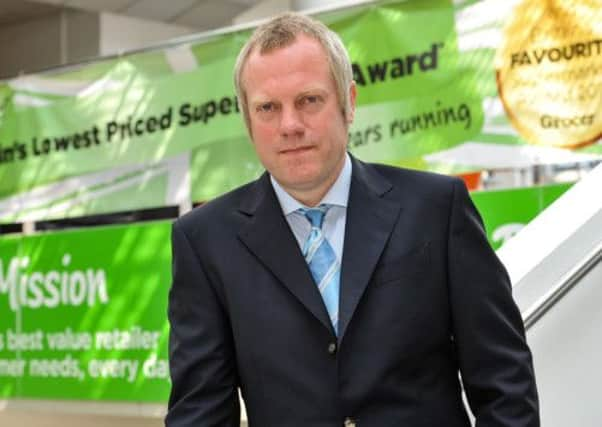Consumers’ ‘feelgood factor’ spurs sales on the high street


The reported sales balance in the CBI’s monthly distributive trades survey jumped to +27 versus economists’ forecasts for a rise to +19. That was the highest reading since last November.
The growth was broad-based, with sales of clothing, food and recreational goods performing particularly well, the industry group said.
Advertisement
Hide AdAdvertisement
Hide AdBarry Williams, chief merchandising officer for food at Leeds-based Asda and chairman of the CBI Distributive Trades Survey Panel, said: “The feelgood factor from the heatwave, summer sales, royal baby fever and sporting victories has helped boost the high street, with clothing retailers and grocers benefiting in particular.
“A rise in spending is welcome news, but the bottom line is that confidence will not bounce back fully until family finances improve further.
“Retailers expect another similarly strong month of sales growth in September, but this isn’t a time to rest on our laurels as shoppers may return to cautious spending until they see a sustained improvement to the pound in their pocket or, dare I say it in August, until the festive spirit kicks in.”
In the CBI’s quarterly survey, the reported employment balance improved to its highest level since May 2002, while the business situation index rose to its highest in three years.
Advertisement
Hide AdAdvertisement
Hide AdOfficial data showed earlier that retail sales rose at their fastest annual rate in over two years in July as a heatwave boosted sales of barbecue food and outdoor items, adding to signs that the economy got off to a strong start in the third quarter.
Tom Vosa, chief economist at Yorkshire Bank, described the CBI figures as “extremely strong” and said the fall in stocks and rise in orders bode well for manufacturers should those orders be placed with domestic suppliers.
But he raised concerns that the summertime surge could start to slow down in the autumn.
Mr Vosa said that consumption is being fuelled by households “dissaving” in the low-interest rate environment.
“The question is, how long can this last?”
Advertisement
Hide AdAdvertisement
Hide AdUnless there is an increase in wages and inflation remains weak, the sales boost could fizzle out by Christmas, he warned.
Mr Vosa said: “With average earnings growth still only around 1 per cent year on year, well below the rate of inflation, we would question how long the UK recovery can be pinned on the consumer.
“Households have been helped by lower mortgage costs and rising house prices, which all imply that some equity withdrawal could take place during the second half of this year.
“But we remain concerned that payment protection insurance repayments may be behind the surge in spending, which inevitably means that spending will fall once one-off windfall gains are used up.
Advertisement
Hide AdAdvertisement
Hide Ad“The £13.5bn paid out by banks so far in compensation to customers is worth a 3.5p cut in the basic tax rate.
“However, once PPI compensation has been paid, estimates of further mis-selling compensation are nowhere near the PPI amount.
“Credit card insurance mis-selling is due to cost the industry £1.5bn or perhaps one tenth of the total PPI bill.
“Even if we include compensation payments from packaged accounts there is simply not enough to fund the current pace of retail spending. While the strong survey outturn suggests some upside risk to our central forecast for 0.8 per cent GDP growth in the third quarter, we remain unconvinced that the current pace of consumption can be sustained given the weakness in real average earnings growth.”
Advertisement
Hide AdAdvertisement
Hide AdIn his first speech since taking over the Bank of England, Governor Mark Carney said yesterday that the recent economic pick-up was broad-based but remained “solid not stellar”.
Among the risks for the recovery, he said a few less well-managed financial institutions still had a long journey to get back to health.
He also noted the strain on emerging economies which have seen big outflows of capital back to recovering richer countries and said progress on Europe’s debt crisis would remain uneven.
Mr Carney warned financial markets that the central bank would pump more money into Britain’s economy if they bet against it and choked off re-covery.
Advertisement
Hide AdAdvertisement
Hide AdThe Bank spent £375bn on government bonds between 2009 and last year to try to steer Britain’s economy out of the stagnation in the wake of the financial crisis.
Mr Carney said the option of further stimulus was part of the forward guidance plan announced by the Bank earlier this month, which mentioned the possibility of more asset purchases.
@bernardginns